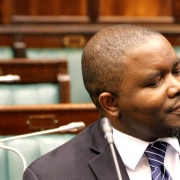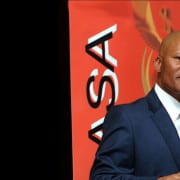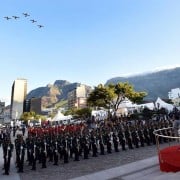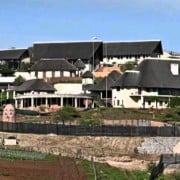|
Getting your Trinity Audio player ready...
|
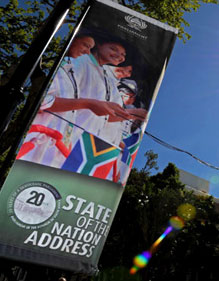 By Valencia Talane
By Valencia Talane
As President Jacob Zuma stood to address Parliament and the rest of South Africa on the state of affairs in the country on Thursday, South Africans would have been divided between those who hoped against all odds that there would be a bold statement on accountability to corruption by government leaders, and the sceptics who believed there would be hardly any change.
If there had been a bet on which way the State of the Nation Address (Sona) would go, the sceptics would have won. In this year’s Sona, the corruption message once again lacked substance, except for the usual oratory on the strides made by the Public Service Commission’s Anti-Corruption Hotline, the Special Investigating Unit and the Asset Forfeiture Unit in tracking fraud and corruption instances in government department and recovering state assets respectively.
Sona 2014, however, desperately needed to have a profound message on action, with less emphasis on plans. The numbers shared by Zuma of public servants who have been punished for fraud and corruption are impressive, but analysis after analysis of South Africa’s corruption challenge has pointed to the need to start at the top to address the scourge.
Public Protector Thuli Madonsela has in the past year released damning investigative reports that finger senior government officials such as agriculture, forestry and fisheries minister Tina Joemat-Pettersson and former communications minister Dina Pule in inappropriate conduct regarding the procurement of key services. The latter was fired from her post in July 2013, but remains a member of parliament, while Joemat-Pettersson is still in office with no official word from the Presidency on her future.
Corruption Watch has also called for the removal of the two ministers, after the release of Madonsela's findings – but there has been no decisive action from the top which would have sent a clear message to other wrongdoers.
In a recent address to Parliament, auditor-general Kimi Makwetu put government’s wasteful, irregular and fruitless expenditure at alarming levels for the 2012/13 financial year. Billions went down the drain. Makwetu reportedly said the biggest problem is that corruption too often went unpunished. "I think the point is – once the consequences that come with somebody who has not done the right thing are in place, over a period of time we might start seeing some of these things disappear," he was quoted by enca.com.
A recent opinion piece written for The Star newspaper by Corruption Watch’s executive director David Lewis noted the growing distrust of citizens in public officials' will to fight against corruption.
“In 2012, 68% of the complaints filed with Corruption Watch had been previously submitted to one of other official agency or reporting hotline. In last year’s survey this declined to 53%,” wrote Lewis. “Whereas in 2012, 18% of those reporting to us had also reported to the presidential hotline, last year this had declined to 4%. The stated reason for this decline is that they had found the official channels to be non-responsive and they did not trust them.”
With Zuma himself at the centre of what is perceived to be one of the biggest corruption scandals since the infamous arms deal – the Nkandla saga – public perception of his administration requires a great boost.
The forceful message that needed to come out of Sona, therefore, was that impunity has no place in the government’s vision for ridding the country of corruption.


